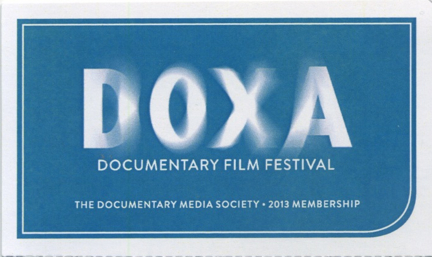California Dreamin’
The DOXA festival is on this week in Vancouver and as docu-philes Andrew and I couldn’t be happier.

We love docs and have a soft spot for this particular festival as it marks the anniversary of our first date (unbeknownst to me 🙂 ) four short years ago.
This past Sunday we viewed 2 films. The first, Becoming Traviata, was a behind-the-scenes look at the process and preparation of staging Verdi’s opera, La Traviata. The doc focuses on the development of the characters, chiefly the title role of Violetta, and although I might have liked to see more of the stage and costume design process, I’m not surprised that I enjoyed it (I’m so drawn to HOW things are done that if I were to meet you at a party and ask you what you do, I mean I want to know more the process of how you do it rather than the title of your profession).
Our second doc of the day was The Great Hip Hop Hoax and my brain has been churning ever since.
A Brief Synopsis
Two Scottish lads try to break into the UK hip hop scene and are shunned. On a whim they put on American accents, introduce themselves as Californian artists and immediately get invited to perform in London. They perform in London under the well constructed veil of their U.S. alter egos and unbelievable success ensues.
It’s certainly not the first time artists have manufactured alternate identities, though the film doesn’t touch upon the long history of performative personas that punctuate the music industry.
Instead, the doc is tuned toward the bromance of Gavin and Billy – how their improbable caper turned each of them into people they didn’t much like and the impact this had on their relationship.
Subtextually, the film is a fine illustration of how much weight the music industry – and contemporary society – places on superficial image.
As their American egos, Silibil n’ Brains, the boys were recording and performing material they had previously done as Gavin and Billy. The very same material that had them laughed out of an American A&R audition. Why, when they performed this material with an American accent, was their work suddenly deemed worthy of recognition? Just goes to prove that the immense power of the “western mystique” hasn’t paled any over the years.
Quite possibly it was this power that kept the boys from ever exposing their true Scot selves while they were living, writing, recording, performing, and rubbing shoulders with industry biggies. In light of their previous experience, shedding their faux American skins and revealing their true identity meant risking acceptance…of themselves and their music.
Identity gymnastics aside, I think I found this doc so intriguing because I’ve often considered doing something similar; flipping my gender – at least on paper – to see if I noticed any increase in interest and opportunities. It wouldn’t be that difficult, my name being already spelt as the male version.
You might scoff at me and say, “That’s silly.”
You might argue that I wouldn’t notice any difference at all.
You might dispute that the work is the work is the work and any value or importance ascribed to it would be based solely on the merit of the work itself.
However, it is a sad truth that the fine art industry is still dominated by men. I struggle with the concept that this is because the work men make is intrinsically “better”.
The Great Hip Hop Hoax proves – at least in the music industry – that creative quality is not something that is judged objectively. The benchmark of “quality” will always be shaped by biased and impartial opinions.
The way I’ve been conditioned I’m certain I don’t make objective judgments regarding worth, but at least I can acknowledge my biases and realize that any judgment I pass will not be impartial. How about you? Are you aware of the biases that colour your judgment?